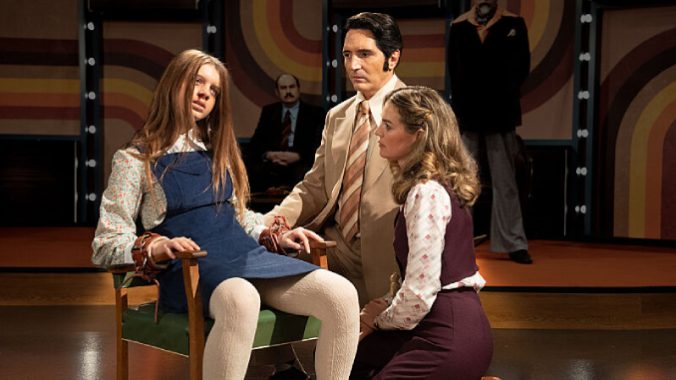Late Night with the Devil Is a Winning Tabloid Talk Show from Hell

The brothers behind Aussie cult horror-comedy 100 Bloody Acres, Colin and Cameron Cairnes return to the uneasy balance of genres for Late Night with the Devil—and they throw in a new one for good measure. Not content to simply be charmingly hacky or tightly gruesome, Late Night with the Devil is also a great movie about (and existing within the form of) talk shows. Thanks to its commitment to the ‘70s made-for-TV bit, ever-escalating stakes and nervously swaggering lead performance, the ratings ploy from Hell finds substance inside its shtick.
Much of that is due to David Dastmalchian, who was born for the role of an underdog late-night host, occupying the uneasy space between slick smarm, hungry entitlement and genuine empathy. His piercing eyes and faltering smile persist through the patter and the cue cards. He’s half-charming, deeply fake, his mediocrity tinged with sadness. Eventually, his slimy confidence sloughs away to reveal credulous, abject panic. Dastmalchian’s a captivating performer, especially in genre film where his characters’ tics and imperfections (often conveyed through his deep, sad stare, darkened under his heavy eyebrows) ground the over-the-top goings-on. When it’s clear that his Jack Delroy has brought something he could never hope to understand—let alone control—onto his flagging program Night Owls as a final resort, we’re plummeting on the roller coaster right alongside him.
-

-

-

-

-

-

-

-

-

-

-

-

-

-

-

-

-

-

-

-

-

-

-

-

-

-

-

-

-

-

-

-

-

-

-

-

-

-

-

-








































